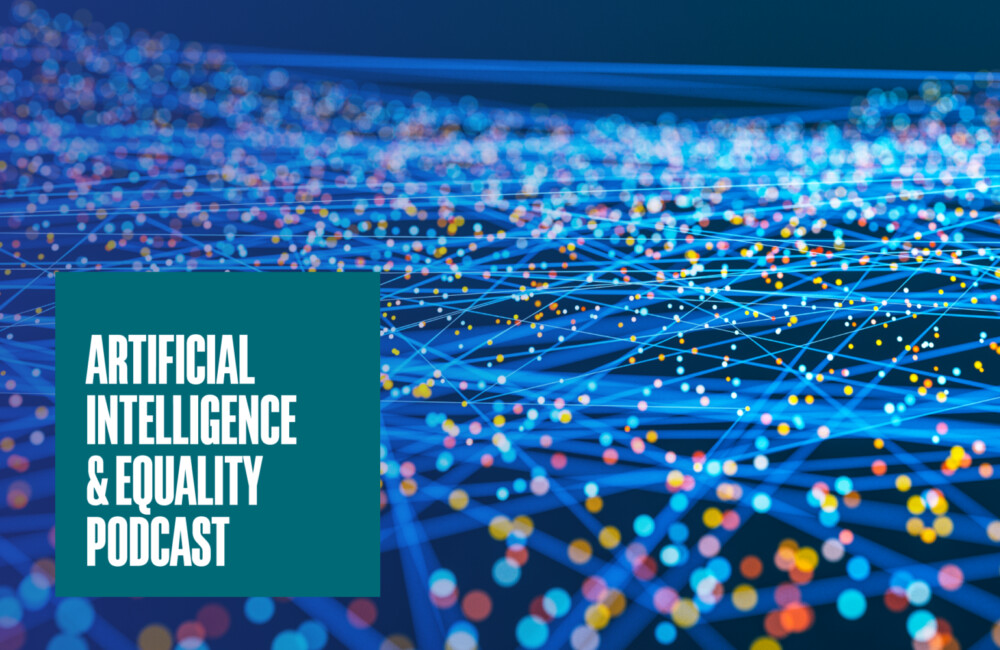Framing ethical perspectives
Applied ethics refers to the practical applications of the moral principles that govern behavior. Carnegie Council focuses on this field, mostly through the realm of international affairs, by identifying and addressing the most critical ethical issues of today and tomorrow. Our initiatives, content, and experts analyze the way that governments, institutions, and individuals interact and make choices on global issues, such as climate change, emerging technology, and governance.
Featured Applied Ethics Resources
Practical conversations, decision analysis, and more
MAY 10, 2022 • Podcast
Making Decisions When Values Conflict or Are Prioritized Differently, with Paul Root Wolpe
JUL 5, 2023 • Article
A Framework for the International Governance of AI
Carnegie Council, in collaboration with IEEE, proposes a five-part AI governance framework to enable the constructive use of AI.
APR 12, 2022 • Podcast
Surveillance Tech's Infinite Loop of Harms, with Chris Gilliard
In this discussion with Senior Fellow Arthur Holland Michel, Chris Gilliard explains why the arc of surveillance technology and novel AI bends toward failures that ...
Related Initiatives
Carnegie Ethics Accelerator
The Carnegie Ethics Accelerator is a new kind of incubator designed to empower ethics in the face of swiftly evolving challenges in technology and public policies.
Ethics & International Affairs Journal
Ethics & International Affairs is the quarterly journal of Carnegie Council. It aims to close the gap between the theory and practice of ethics.
Carnegie Ethics Fellows
The Carnegie Ethics Fellows program (CEF) seeks to cultivate the next generation of ethical global leaders across business, policy, technology, NGOs, and academia.
Explore Our Applied Ethics Resources
DEC 3, 2010 • Podcast
Global Ethics Corner: Interests or Values: The West and Israel
Western support of Israel demonstrates a clash of interests and values. Israel is a key U.S. ally, yet its policies towards Gaza and the ...

NOV 19, 2010 • Article
Policy Innovations Digital Magazine (2006-2016): Briefings: Saving the Last Tiger Strongholds
An additional $35 million per year for population monitoring, stronger law enforcement, and community organizing could enable tiger numbers to double in their last 42 strongholds.

OCT 19, 2010 • Article
Defence Review is an Opportunity, not a Threat, to our Military
Britain's military capacity is likely to shrink following the soon-to-be-released strategic defence and security review. But many of the changes most feared by the military ...
OCT 15, 2010 • Podcast
Global Ethics Corner: Politics and Civility
Civility has fled the 24/7 news cycle. Public life need not be this way. Why do we tolerate, even gorge, on this lack of civility? How ...
SEP 20, 2010 • Podcast
Forty Years After Friedman: What is the Proper Role of Business in Society?
In 1970 Milton Friedman published an article entitled "The Social Responsibility of Business is to Increase Its Profits." In light of current business problems, such as ...

SEP 20, 2010 • Article
Policy Innovations Digital Magazine (2006-2016): Briefings: Journalism Students Interview Policy Innovations
Indian Institute of Journalism & New Media students interview editor Devin T. Stewart on how journalists can use social media for newsgathering, research, interviews, crowdsourcing, and ...

AUG 24, 2010 • Article
Is Peace Worth Fighting For?
Peace is worth fighting for--but that doesn't mean a blank check for military options, writes Joel Rosenthal. There are better, smarter, more moral ways to ...

AUG 20, 2010 • Article
Can We Succeed Where Carnegie Failed?
Carnegie's belief was that nations could resolve disputes without resorting to war. He worked hard to create mechanisms for achieving peace, but his hopes were ...

AUG 19, 2010 • Article
Should We Stop the Next Genocide?
Should the United States, as the world's greatest military power, use its might to prevent the next outbreak of ethnic violence from turning into a ...

AUG 12, 2010 • Article
Policy Innovations Digital Magazine (2006-2016): Briefings: Altered Genes and Their Vendors
The evidence on both sides of the genetic modification debate is inconclusive, but attentive regulation could ensure crop safety in developed and developing countries.





